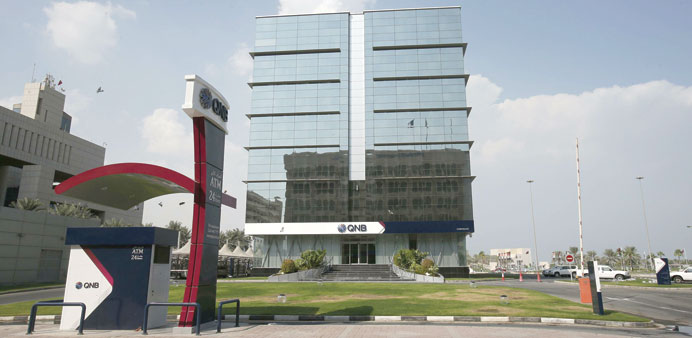Standard & Poor’s has affirmed its ‘A+’ long-term and ‘A-1’ short-term counterparty credit ratings on QNB. The outlook is stable.
The rating affirmation follows S&P’s review of QNB’s recent acquisition of Egypt-based Nationale Société Générale Bank (NSGB).
“We consider that the weak operating environment in Egypt could be prolonged and significantly affect NSGB, with a likely adverse impact on QNB’s business and financial profiles. In particular, NSGB holds a high amount of government debt compared with its equity base and earnings capacity.
“We have therefore revised our assessment of QNB’s risk position to ‘moderate’ from ‘adequate’ and our assessment of QNB’s stand-alone credit profile (SACP) to ‘bbb+’ from ‘a-’,” S&P said.
At the same time, S&P believes there is a “very high” likelihood of extraordinary support from the Government of Qatar if QNB is in financial distress as the rating agency classifies the Doha-based lender as a government-related entity (GRE). The potential support provides a three-notch uplift above the SACP; therefore the long-term rating on QNB remains at ‘A+’.
In line with its criteria for GREs, S&P bases its view of a “very high” likelihood of extraordinary support on QNB’s “very strong’ link with Qatar’s government, which owns 50% of the shares, and provides ongoing and extraordinary support.
S&P has also noted the “very important role” for the Qatari government, based on QNB’s central role in financing the country’s economy (including strategic sectors like hydrocarbons, petrochemicals, water, and power). This is reflected in the significant concentration of public-sector lending and deposits on QNB’s balance sheet.
In S&P’s view, QNB also plays a part in supporting the state’s foreign policy strategy through its rapid international expansion, which promotes economic diversification.
“We think the government of Egypt is currently vulnerable and dependent on favourable political and economic developments to service its debt obligations, and view Egypt’s political, external, fiscal, and economic risks as high. Risks incurred by operating in Egypt have consequently heightened.
“In particular, QNB faces significant sovereign risk because it holds, through its recently acquired Egyptian subsidiary NSGB, a high amount of Egyptian government debt compared with its equity base ($2.8bn or 21% of QNB’s shareholders’ equity as of June 30, 2013).
“We also take the view that NSGB’s domestic asset quality could deteriorate rapidly in the coming quarters as the domestic economy remains weak. As of June 30, 2013, NSGB reported total loans of QR22bn, accounting for almost 7% of QNB’s consolidated loan portfolio,” S&P said.
Nevertheless, the rating agency acknowledged that QNB’s overall resilience to risks incurred by operating in Egypt remains strong. In its opinion, QNB’s strong capitalisation and significant retained earnings capacity are sufficient to absorb potential losses associated with a default of Egypt.
Rating stability for QNB is also reliant on QNB’s ability to effectively manage its ambitious international expansion plans. To counteract the limitations of the domestic market, QNB aims to capture retail business in under-banked emerging markets.
S&P expects international banking activities to make an increasing contribution to QNB’s revenues over the next five years, compared with 17% in 2012.
The stable outlook reflects the rating agency’s view of QNB’s key strengths, including its dominant commercial position, strong capital and earnings, and its shareholding structure, which it anticipates will remain relatively unchanged.

S&P sees a u201cvery highu201d likelihood of extraordinary support for QNB from Qatar’s government
